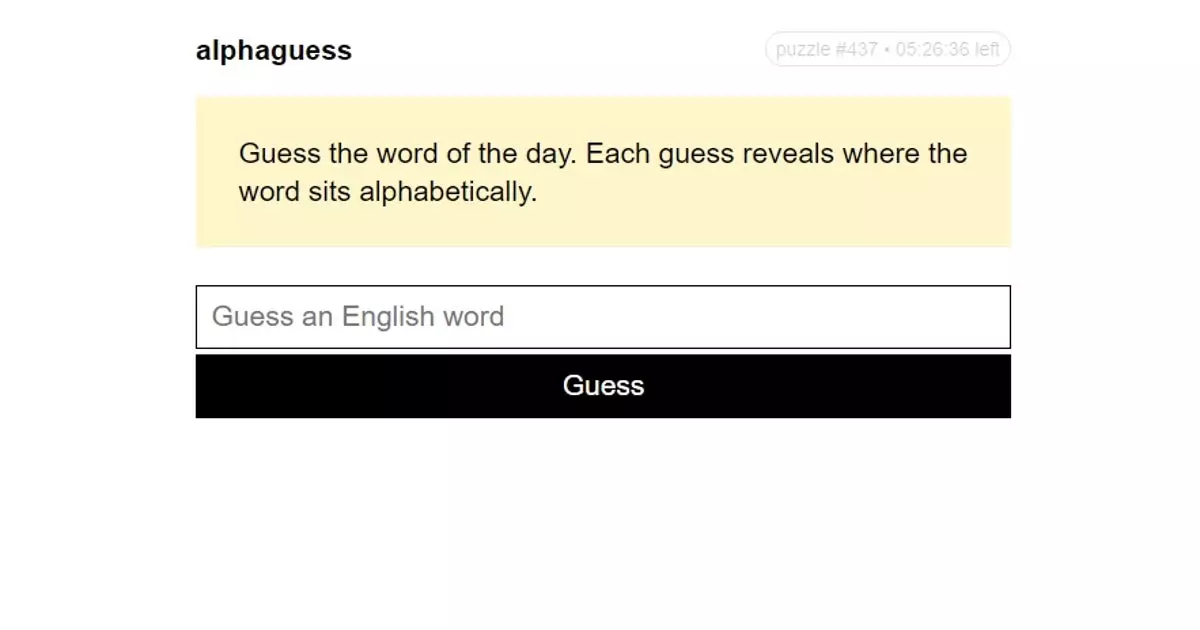In the modern era, where productivity reigns supreme, the casual gaming landscape has introduced a peculiar paradox. Many apps and games are specifically designed to be distractions, yet they draw individuals in with promises of mental engagement. One such game is Alphaguess, a browser-based puzzle that challenges players to unravel a daily word mystery. In dissecting the success and appeal of such games, it becomes clear that they do not merely divert attention but also create a context for playful exploration of language.
Alphaguess operates on a deceptively simple premise: players must guess a hidden word while receiving feedback on how their guesses align alphabetically with the correct answer. Each incorrect guess provides a clue about the positioning of the target word, making for a game that seemingly merges luck with logic. However, despite its superficial appeal, the game lacks the deeper cognitive challenges often associated with traditional puzzles. The true charm lies not in complex problem-solving, but in the satisfaction of linguistic exploration. The experience can evoke nostalgia, reminiscent of childhood games or engaging discussions with friends.
While Alphaguess may not require strategic thinking in the classic sense, it cultivates a unique type of engagement. Many players, including myself, are drawn to the thrill of the chase—making educated guesses, narrowing down options, and relishing the satisfaction that emerges when the word is finally unveiled. The game’s structure allows for a momentary escape from daily responsibilities, providing a brief respite in an otherwise busy life. It is a delightful cognitive break that offers just enough challenge to keep players invested without overwhelming them.
Engaging with Alphaguess or other similar games presents a significant irony. On one hand, these games can detract from heightened focus on tasks, resulting in potential procrastination. On the other hand, they may facilitate mental refreshment, enabling enhanced productivity levels when players return to their work. Certainly, brief interludes spent solving word puzzles serve a purpose; they can invigorate our minds and stimulate creative thinking. Yet, during particularly demanding periods, they pose a threat to anyone trying to maintain unwavering concentration.
Reflecting on the Value of Casual Gaming
Casual games like Alphaguess function within a complex framework of distraction and engagement. By offering an accessible platform for linguistic play, they invite us to step back from our productivity-driven lives and enjoy the simplicity of guessing a word. While they may not fit the traditional mold of puzzles that necessitate deep lateral thinking, their charm lies in the combination of nostalgia and the social aspect of gaming, subsequently encouraging even more people to partake in this trending pastime. As we navigate our quest for productivity, it is essential to recognize the nuanced role such games play in our daily routines—neither wholly dismissal nor championing, but rather a thoughtful consideration of balance in our digital interactions.


Leave a Reply